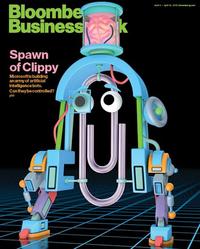Many Web companies and new technologies build on these wizards able to discuss with their users and respond to their queries.
the future of the Web lies in four letters. The “bots”, a contraction of “robots” are the latest fad in the technology industry. Their definition varies among companies and their concept. The word “bot” is primarily a program to talk to users and offer them services according to their demands. And Silicon Valley is in a talkative mood. To Satya Nadella, CEO of Microsoft, bots will soon be “more powerful than applications on smartphone”. Amazon sells since 2014 Echo, an intelligent speaker able to understand and meet the demands of its users. Last lick-bots dated, Facebook is expected to announce this week the opening of a robot development platform for companies within Messenger, its messaging application. It tests for several months an intelligent assistant, M, capable of driving a taxi like to offer a parrot to one of your colleagues.
A difficult start
As early 50, is already thinking about the possibility to discuss with a robot. The Turing test, developed by Alan Turing in 1950, incorporates this idea to test an artificial intelligence, one has to discuss the blind with a human, which therefore must guess whether this is true person or a robot. This test will inspire ten years later the birth of ELIZA, a program developed by Joseph Weirenbaum. His goal was to prove that it was very easy to create an illusion of human intelligence, programming a robot whose answers are caused by the use of certain words.

Clippy
The first use of “Chatterbot “dates from 1994. It was at this time that the conversational robots leave research labs or conference rooms to be housed in public services. The Internet and computing 90s replete with examples of more or less complex bots: SmarterChild (present in the AIM messaging), infobot (IRC), etc. One of the best known examples is the public Clippy, the personal assistant of the Microsoft Office suite. Appeared in 1997, his trombone-shaped body and beady eyes traumatized a generation of Microsoft Word users. Clippy was programmed to understand the needs of its users according to their actions or questions they might ask him, typing in a window provided for this purpose. In fact, the program rarely gave adequate answers and had a tendency to occur at very regular intervals, without being asked him anything.
The complexity of the Web
Today, bots are smarter than Clippy. These improvements are mainly due to technological progress, especially in artificial intelligence. The software is capable of providing coherent answers to complex questions, taking into account their context and author. The improvement is such that fiction has already passed to the next step: if human robots that can fall in love. Movies Her or Ex Machina (out respectively in 2014 and 2015) imagined a near future where men have relations with artificial intelligences, developed by large companies technologies that are strongly reminiscent of Google and Apple. It seems closer to our reality than science fiction.
In practice, the artificial intelligence is still far from independent. Microsoft has made experience with Tay, a chatbot on Twitter that was supposed to act as a young woman, but became violent and incoherent in just 24 hours of existence. Without going to these extremes, companies prefer a mixture of artificial intelligence and human expertise to ensure the quality of their service in the case of M (Facebook) or the French start-up Jam.
The other reason the recent success of bots is the increasing complexity of the Web. We sail daily between dozens of applications and websites, which often ask many additional actions: open a tab, your Email address, give their credit card number, etc. Bots today intend to facilitate this tedious process. Siri, which inspired the film Her was the first to offer assistance to the greatest number. Offered on the iPhone since 2011, this voice assistant is able to act on your smartphone for you. Siri can be asked to set an alarm on his phone, send an email to the dictation or to search for something on the Web. Apple was quickly followed by Google and Microsoft. They have their own voice assistant, Cortana and Google Now.
Revolution Messaging
Siri, Cortana and Google Now mainly operate Internet search results. The new generation of bots will enjoy a website or application without leaving the messaging interface. Rather than ask a virtual assistant search results for “taxi Paris”, it can book your trip in an application taxis and even adjust with your banking information. The idea is not to replace the applications, but to facilitate their use.
The professional messaging Slack was forerunner in this field, with more than a hundred integrated service applications . Most are tools for professionals, such as Google Drive or Dropbox. Others are more fun while useful, as the bot Taco Bell, which can be delivered tacos office. There are also bots in conventional messaging applications, especially in Asia, with or WeChat Line. What give ideas to Facebook, which has invested heavily to improve Messenger. The social network has already signed several partnerships with companies so that they can communicate with their users in the application. In France, Voyages-SNCF and Axa are the first to test the tool. Convenient for users, but also lucrative for Facebook. Messenger has no economic model and does not display ads. This kind of contract is a means for the social network to monetize their application.

Cette week at its annual developer conference, Facebook will move into high gear, announcing the opening of a platform for companies wishing to developer their own bot Messenger. A similar logic to that of Microsoft, which announced in early April launch two tools to develop virtual agents for Cortana and Skype software. “Order a taxi, buy a plane ticket or a pizza, whatever you do on the internet, you can do by talking with a bot!” Boasted Satya Nadella. Great ambitions summarized in an image of the Bloomberg Businessweek magazine: Clippy with a robotic body and finally a brain
.
No comments:
Post a Comment